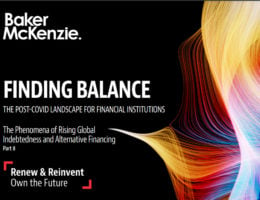The Financial Services Regulatory (FSR) Momentum Monitor is a horizon-scanning tool enabling financial service providers to plan and prepare for coming developments across the jurisdictions in which they operate. Grouping upcoming changes into key business-relevant themes, the FSR Momentum Monitor highlights the extent and expected impact of upcoming regulatory intervention in multiple jurisdictions across the globe.
A significant new rulemaking proposal from the U.S. Securities and Exchange Commission (SEC) would fundamentally alter how private investment funds negotiate and communicate with their investors. The proposal (“Proposal”) would prohibit indemnification of managers for many types of mistakes, restrict some common side letter terms, require auditors to report certain events to the SEC and mandate quarterly reporting for private fund investors. Crucially, some of the Proposal’s prohibitions would, for the first time, substantively regulate unregistered and exempt investment advisers, both inside and outside of the United States.
The business models of financial institutions are changing: how services are delivered, the ways in which they can earn revenue and the search for new ways to monetize value. COVID-19 has accelerated the take-up of digital transformation due to the need to conduct more business remotely through digital channels. Simultaneously, customers have shown a greater willingness to use technologies in which previously they may have lacked confidence.
Read our ninth installment focused on the impact of new technology on financial institutions.
On 9 February 2022, the Securities and Exchange Commission voted 3-1, with Commissioner Peirce, the lone remaining Republican appointee opposed, to propose new rules under the Investment Advisers Act of 1940 and the Investment Company Act of 1940 related to cybersecurity risk management, reporting of breach events, and recordkeeping for registered investment advisers and investment funds.
On 9 February 2022, the Securities and Exchange Commission voted 3-1, with Commissioner Peirce, the lone remaining Republican appointee opposed, to propose new rules under the Investment Advisers Act of 1940 and the Investment Company Act of 1940 related to cybersecurity risk management, reporting of breach events, and recordkeeping for registered investment advisers and investment funds.
The risks arising from unsustainable indebtedness to which both traditional and alternative financing sectors have exposure are higher in emerging economies, where the debt burden is much more elevated generally and whose borrowers are more susceptible to default if (as is expected), US dollar interest rates rise. Emerging economies with less policy intervention, monitoring and regulation are more vulnerable than advanced economies. This eighth installment focuses on the phenomena of rising global indebtedness and alternative financing.
Financial crime remains at the top of the regulatory agenda across the globe. As responses to the pandemic stabilise, and following some high-profile global incidents, regulators face renewed pressure to manage financial crime more effectively through robust supervision and enforcement. In the October 2021 edition of the City Library’s Compliance Officer Bulletin, our business crime, regulatory and cybersecurity lawyers explore the latest developments in anti-money laundering and financial crime in a series of articles
The growth of digital engagement practices has raised regulatory issues for broker-dealers and investment advisers. In this preview of an article from an upcoming issue of The Review of Securities & Commodities Regulation, Amy Greer discussed a variety of such issues, including account opening due diligence and best execution. They suggest that, as a starting place, to prepare for regulatory examinations firms should review current practices and address those concerns raised by the SEC and FINRA in their recent statements, guidance, and regulatory responses.
The US Securities and Exchange Commission (SEC) recently published a request for information and comment on how broker-dealers and investment advisers use digital engagement practices (DEPs) — behavioral prompts, differential marketing, “gamification,” and other design elements and features that firms use to engage with retail investors through digital platforms and mobile applications.
COVID-19 represents one of the greatest ever shocks to our economies and, in consequence, to the business models of financial institutions and the way they do business. While many changes to business processes and operations were already taking place prior to the pandemic, COVID-19 has given many added impetus and urgency. Decision-makers must choose between adapting a wait-and-see approach or implementing more proactive strategies to safeguard and, if possible, grow their businesses.








